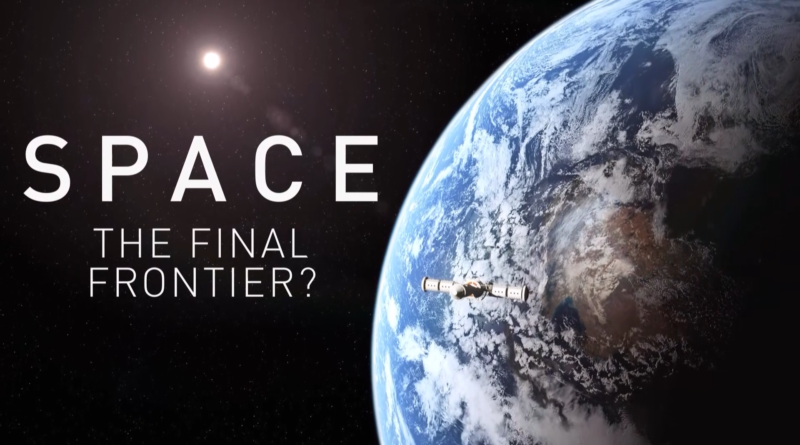Space: The Final Frontier – Exploring the Infinite Beyond
Space has long captivated human imagination. From the dawn of civilization to the advancements of modern technology, the concept of “space the final frontier” has been a constant thread weaving together science, philosophy, and exploration. In this article, we will explore the significance of space, how it has shaped our understanding of the universe, and the ongoing exploration that continues to push the boundaries of human knowledge.
Understanding “Space, The Final Frontier”
The phrase “space, the final frontier” has become iconic, largely due to its use in the opening credits of Star Trek. It encapsulates the vastness and the unexplored potential of outer space, signifying that space is the ultimate realm for exploration and discovery. This concept invites us to contemplate the unknown, challenge our understanding, and envision the future of human exploration beyond Earth.
The phrase suggests not just a literal frontier but also a metaphorical one, symbolizing challenges, opportunities, and the unknown. As we strive to explore new worlds, space represents a frontier that is boundless, offering endless opportunities for scientific discovery, technological innovation, and philosophical inquiry.

The History of Space Exploration: From the First Steps to Modern Achievements
The journey of space exploration began with humanity’s curiosity about the stars and the possibility of traveling beyond Earth’s atmosphere. In 1961, Soviet cosmonaut Yuri Gagarin became the first human to travel into space, orbiting the Earth aboard Vostok 1. This groundbreaking achievement marked the beginning of an era of space exploration that continues to this day.
In the decades that followed, the world witnessed numerous milestones in space exploration. The United States’ Apollo program reached its peak in 1969 with the historic moon landing of Apollo 11. Neil Armstrong and Buzz Aldrin became the first humans to set foot on the lunar surface, leaving behind a legacy that would inspire future generations of explorers.
The development of space stations like the International Space Station (ISS), which has been inhabited continuously by astronauts since 2000, further demonstrated the possibilities of living and working in space. As technology advances, space travel has evolved from a government-led endeavor to a growing private industry, with companies like SpaceX and Blue Origin leading the charge in commercial space exploration.
Space, the Final Frontier: What Lies Beyond?
As we venture further into the cosmos, we are left with the question: What lies beyond our current understanding of space? While we have learned much through telescopes, space probes, and human space missions, much of the universe remains a mystery. The vastness of space is humbling, and even our closest neighboring planets and moons are still largely unexplored.
One of the greatest areas of interest in modern space exploration is the search for extraterrestrial life. Scientists continue to investigate planets and moons in our solar system, such as Mars and Europa, in the hope of finding signs of past or present life. The discovery of microbial life elsewhere in the universe would be one of the most profound achievements in human history, answering the age-old question of whether we are alone in the universe.
The Role of Technology in Unlocking the Secrets of Space
As we push forward into the great unknown, technology plays a critical role in space exploration. The development of more powerful telescopes, like the Hubble Space Telescope and the upcoming James Webb Space Telescope, allows scientists to peer deeper into the universe than ever before. These tools have provided incredible insights into distant galaxies, nebulae, and the very origins of the universe.
Additionally, advancements in spacecraft technology have allowed humans to venture farther from Earth. Space probes, such as Voyager 1 and 2, have traveled beyond the solar system, sending back data about the outer reaches of space. These missions continue to send information that helps scientists understand the nature of space, from the composition of distant planets to the behavior of cosmic phenomena.
The Future of Space Exploration: What Lies Ahead?
Looking to the future, space exploration promises to continue evolving at an exponential rate. Space, the final frontier, is no longer just a concept for science fiction; it is becoming a tangible reality. The growing interest in commercial space travel is paving the way for private individuals to experience space travel, and innovations in spacecraft technology are making the prospect of space tourism a viable industry.
In addition to commercial space travel, plans for human missions to Mars are already underway. NASA’s Artemis program aims to return astronauts to the Moon by 2024, with the goal of establishing a sustainable human presence on the Moon by the 2030s. This lunar base will serve as a stepping stone for future missions to Mars, which could take place as early as the 2030s. These missions will not only advance scientific research but also test the technologies necessary for long-duration human space travel.
Moreover, the search for extraterrestrial intelligence (SETI) continues, with new methods for detecting signals from other civilizations in distant parts of the galaxy. As our technology improves, the possibility of making contact with intelligent life grows increasingly feasible, offering profound implications for humanity’s place in the cosmos.

The Ethical Implications of Exploring Space: Challenges and Opportunities
As we delve deeper into space exploration, we must also consider the ethical implications of our actions. Space exploration presents numerous challenges, from the preservation of celestial bodies to the management of resources in space. There are concerns about the environmental impact of space missions, including the accumulation of space debris and the potential for contamination of other worlds.
Additionally, the commercialization of space raises important questions about the ownership and control of space resources. As private companies venture into space, there will need to be international agreements in place to ensure that the benefits of space exploration are shared equitably and that the exploration of space is conducted responsibly.
Conclusion: The Endless Possibilities of Space, the Final Frontier
Space, the final frontier, continues to captivate the human spirit. It represents the unknown, the unexplored, and the possibilities that await us beyond our home planet. With each new discovery, we expand our understanding of the universe and our place within it. The future of space exploration holds boundless opportunities, from the search for life beyond Earth to the development of technologies that could change the way we live.
As we venture further into the cosmos, one thing remains clear: space will always be the final frontier, a place where humanity can reach for the stars and strive for new horizons. The journey is just beginning, and as technology advances, the possibilities for exploration and discovery are limitless. What awaits us in space is a mystery that we will continue to unravel, one mission at a time.
